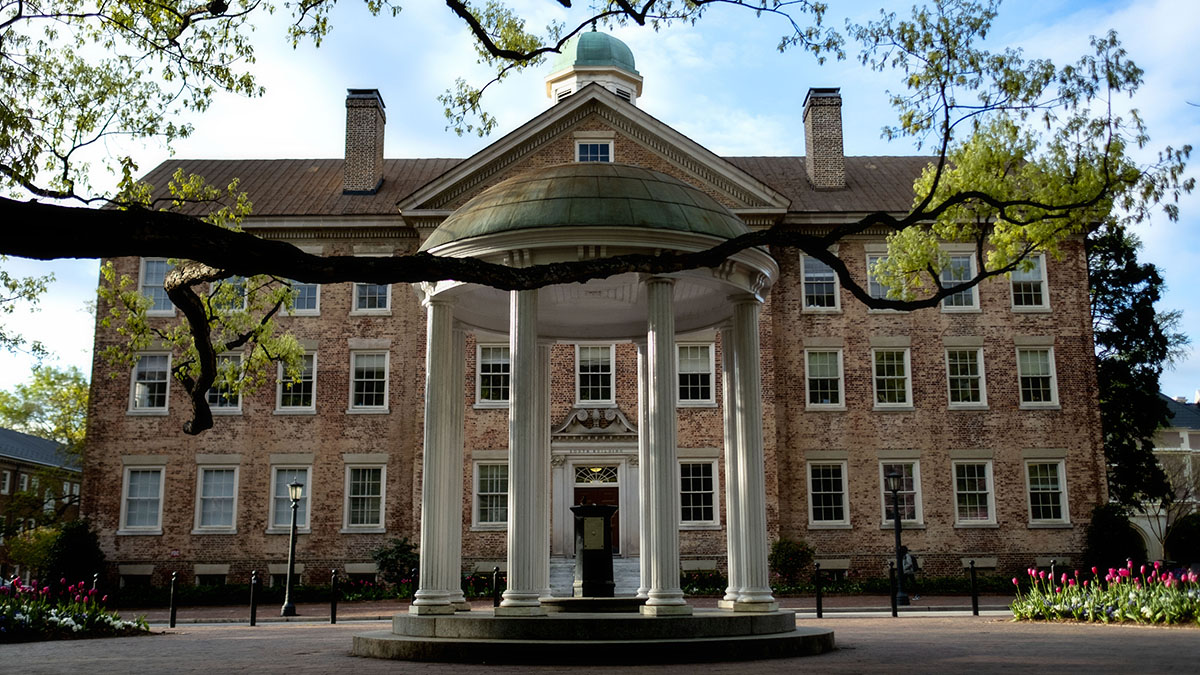Judge dismisses parties’ cross-motions for summary judgment in Students for Fair Admissions v. University of North Carolina-Chapel Hill. Lawyers’ Committee for Civil Rights Under Law Prepares for Upcoming Trial
Greensboro, NC — The Lawyers’ Committee for Civil Rights Under Law applauds Judge Loretta Copeland Biggs’ dismissal of the motion for summary judgment challenging the University of North Carolina’s limited consideration of race in admissions to promote diversity. In 2014, the anti-affirmative action group Students for Fair Admissions (SFFA) – backed by Ed Blum, a longtime opponent of civil rights programs — filed a lawsuit against UNC seeking to prohibit “any use of race or ethnicity in the educational setting,” including admissions (Students for Fair Admissions (SFFA) v. UNC). Earlier this year, SFFA and UNC both moved for a judicial determination in their favor. In Judge Biggs’ Order issued on September 30th, the Court denied both motions and ruled the lawsuit should proceed to trial.
Kristen Clarke, president and executive director of the Lawyers’ Committee for Civil Rights Under Law, issued the following statement:
“Activist Ed Blum is waging an all-out assault on racial diversity efforts at our college campuses and we will continued to vigorously oppose his campaign with the weight of court precedent and history on our side. The Court’s ruling rightly reaffirms the well-settled consensus of educators, researchers and the Supreme Court: race-conscious admissions is both lawful and critical for promoting diversity which enriches the educational environment for all students and better prepares the next generation of leaders to work, live, and thrive in our increasingly multi-ethnic society,” said Clarke. “Racial diversity bridges divides, enlivens classroom dialogue, breaks down stereotypes, and reduces isolation for students of color on campus. Race-conscious policies also better ensure highly-qualified students from all walks of life have a fair shot in a system that otherwise stacks the deck against families of color and lower-income communities.”
Clarke continued: “UNC also has a sordid history of state-sponsored segregation. We must not forget that for most of its history, UNC was a strong and active promoter of white supremacy and racist exclusion. UNC did not admit its first black undergraduates until 1955, and only then pursuant a court order. As a southern state flagship, UNC has a heightened responsibility to promote diversity. UNC has a civic duty to educate North Carolina residents to serve in an increasingly diverse state. Race-conscious admissions helps to counteract the present-day effects UNC’s legacy of racial exclusion by making the campus more inclusive of students of all racial and ethnic backgrounds.”
The Order issued by the court emphasized: “[U]nder existing Supreme Court precedent, a university ‘may institute a race-conscious admissions program as a means of obtaining the educational benefits that flow from student body diversity. . . The Supreme Court has ‘made clear” that such a goal is a ‘compelling interest that justifies consideration of race in college admissions.’” Now that Judge Biggs has ruled that the case will proceed to trial, the Student-Intervenors plan to vigorously defend UNC’s race-conscious policy and the diversity it promotes by presenting both student and expert testimony at the upcoming trial.
The Lawyers’ Committee and co-counsel Relman, Dane & Colfax LLP and the North Carolina Justice Center represent a diverse group of prospective, current, and former UNC students who support race-conscious admissions and advocate for more racial diversity on UNC’s campus, not less. In 2017, the Court permitted the students to intervene in the lawsuit to address two issues: (i) the history of racial discrimination in North Carolina and at UNC, and (ii) the framework for analyzing efforts to achieve a critical mass of diverse students. Student- Intervenors filed their opposition to SFFA’s motion for summary judgment on March 4, 2019.
The Lawyers’ Committee for Civil Rights Under Law is involved in all of the pending cases mounted by Ed Blum challenging race-conscious admissions efforts. The Lawyers’ Committee also represents a diverse group of student-amici — who are Black, Asian American, Latinx, and Native American — in a similar lawsuit filed by SFFA challenging Harvard’s right to consider race to promote diversity in SFFA v. Harvard. The parties and student-amici are awaiting a decision from the district court following last year’s trial.
The Court’s Order and Opinion denying cross-motions for summary judgment is available here. The UNC Student-Intervenors’ brief in opposition to SFFA’s Motion for Summary Judgment is available here, with associated exhibits here.
###
About the Lawyers’ Committee for Civil Rights Under Law
The Lawyers’ Committee for Civil Rights Under Law, a nonpartisan, nonprofit organization, was formed in 1963 at the request of President John F. Kennedy to involve the private bar in providing legal services to address racial discrimination. Now in its 56th year, the Lawyers’ Committee for Civil Rights Under Law is continuing its quest to “Move America Toward Justice.” The principal mission of the Lawyers’ Committee for Civil Rights Under Law is to secure, through the rule of law, equal justice for all, particularly in the areas of criminal justice, fair housing and community development, economic justice, educational opportunities, and voting rights.
Contact
Stanley Augustin, Digital Media Manager at The Lawyers’ Committee for Civil Rights Under Law, Saugustin@LawyersCommittee.org, 202-498-8296


